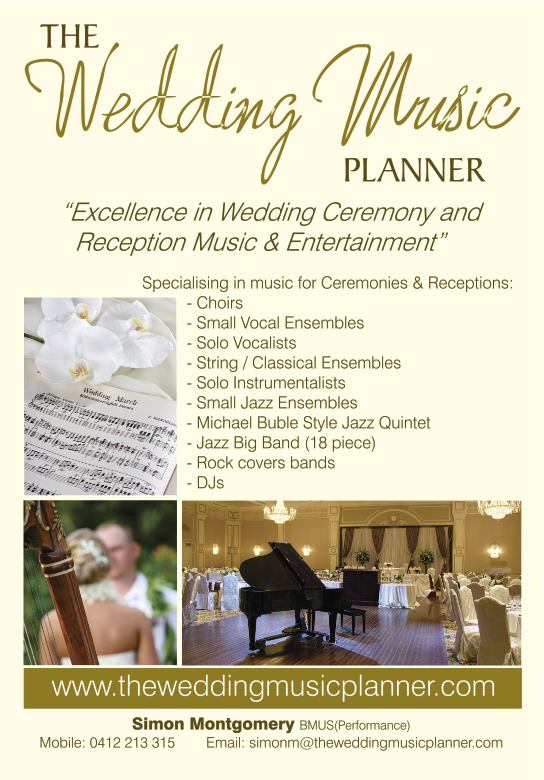A traditional wedding is basically divided into five main parts namely prelude, processional, the actual ceremony, recessional and postlude. Each part has its own  specific purpose. When selecting songs for your church wedding ceremony it is important that you are aware the various parts of the ceremony, what their meaning is and then selecting songs that compliment and not distract from your wedding ceremony.
- The Prelude
This is the music, usually instrumental, played by the musicians prior to the commencement of the wedding ceremony. Most people opt for the music to commence approximately fifteen minutes prior to processional hymn, however, traditionally the Prelude can go for up to forty five minutes before the ceremony.
The Prelude is usually a background hymn is traditionally played from the moment the first guest walks inside the church until the last guest is seated on one of the church pews. The song has the purpose of gathering people and preparing them for the start of the wedding celebration. The organ would be the most used instrument for providing the Prelude hymn, this gives the occasion a sense of traditionalism and solemnity as well as preparing people for this sacred ritual. Other instruments including violins (either solo or a small ensemble such as a trio), flutes and other woodwinds or even a classical guitar would be ideal for providing the right atmosphere for this part of the wedding ceremony. - The Processional
This is the song where the bridal party, specifically the brides maids and the bride enter the church. It is usual a song or hymn that has a sense of purpose and is a proclamation of the bride’s entrance. Most Processional hymns give the sense of majesty, in a traditional church wedding it is important to remember that it is considered a religious ceremony, it is expected that the hymn would give glory to God and not necessarily be focused on bringing glory to the bride.
It is important to select a song that is the right length for the size of your bridal party. Anything too long or short would ruin the serenity of the procession. Consider the number of people who would march down the aisle. These people could include include the flower girls, the bridesmaids, groomsmen, parents of the couple, major and minor sponsors and the bride herself. If the song fell short before the bride arrives at the altar, the moment will be a little awkward. Wagner’s “Wedding March†is the most popular choice and it is also known by many as “Here Comes the Bride.†Some couples select two songs for the Processional, one for everyone to enter to and then a specific one solely for the bride. Thinking about arrangements and timing will significantly effect the mood and atmosphere of your wedding day. - The Ceremony
This refers to all the music used throughout the ceremony itself. As a wedding ceremony held inside of the church is considered to be a sacred rite it is important to be sensitivie to this when selecting your music.
Hymns are commonly sung by a choir, small vocal ensemble or played instrumentally by a band as a part of various elements inside the ceremony including the lightning of candle, the responsorial psalm between readings, communion hymn (sometime two are needed depending on the size of the ceremony) and the signing of the registry. - Recessional
This is the song where the bride and groom and the bridal party leave the church at the conclusion of the ceremony. The songs used for this are generally joyous and festive. Such songs should reflect the happiness felt by the couple and the celebration of the marriage. - Postlude
This music is used in a similar fashion to the Prelude music. It tends to be instrumental and is played as the remainder of the guests leave the church at the conclusion of the wedding. Most Postlude music is played for approximately fifteen minutes after the conclusion of the ceremony. In planning this part of your wedding music be aware of time restrictions including if there is another wedding booked in the church after yours and the amount of time you have paid the musicians to play for.
For more help in selecting the perfect music choice for your wedding ceremony and information on possible musicians and vocalists to sing at your wedding ceremony please contact us.




